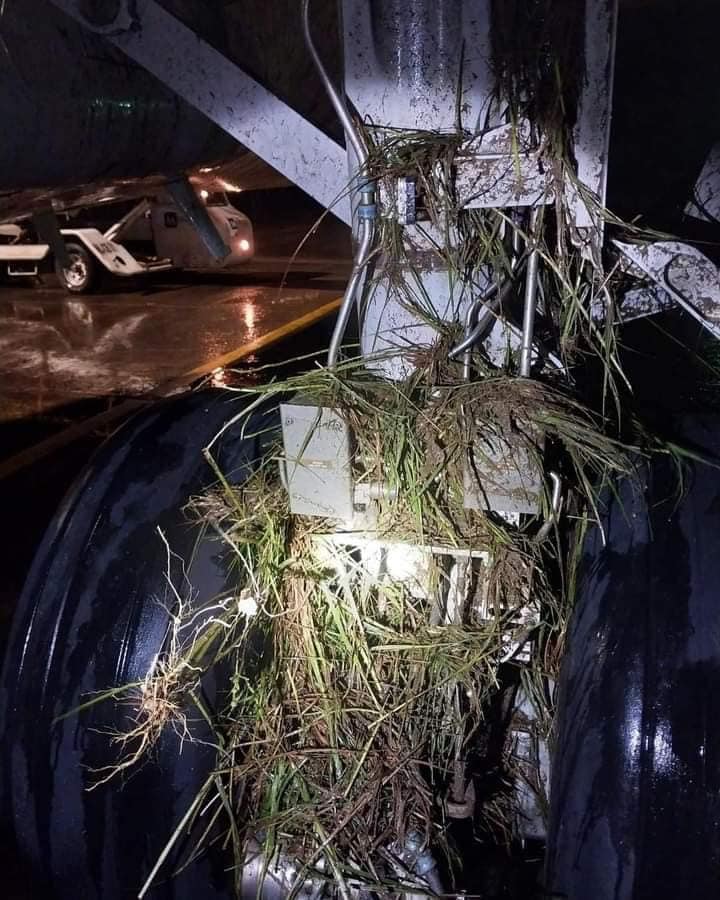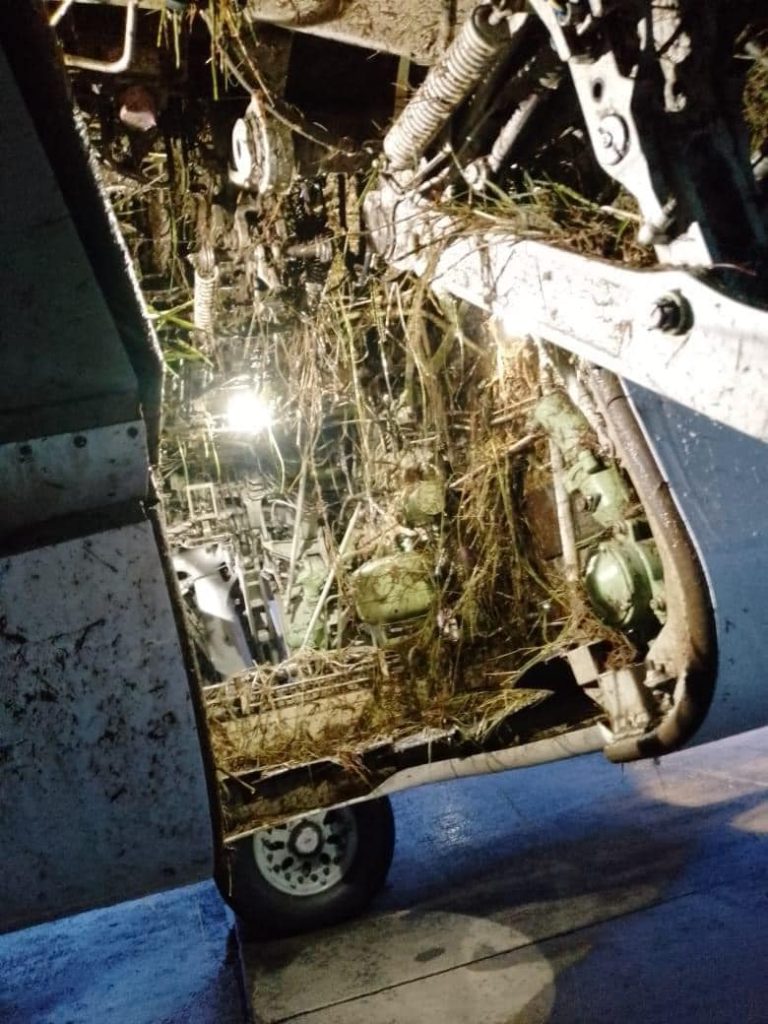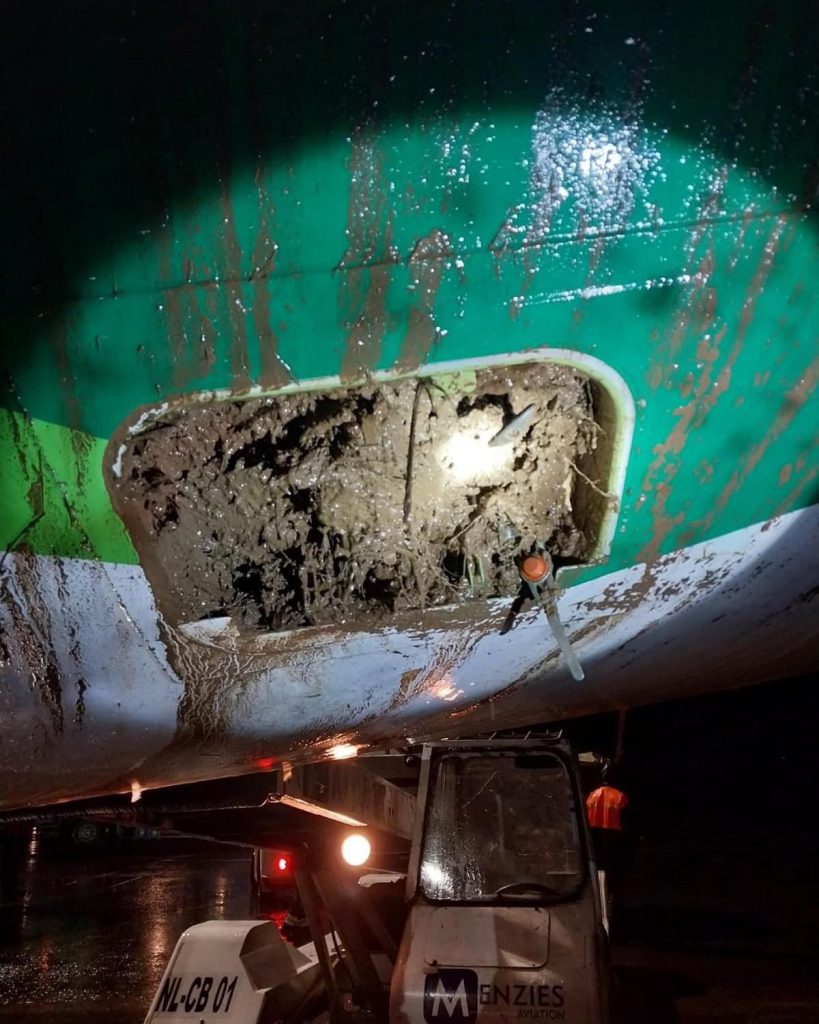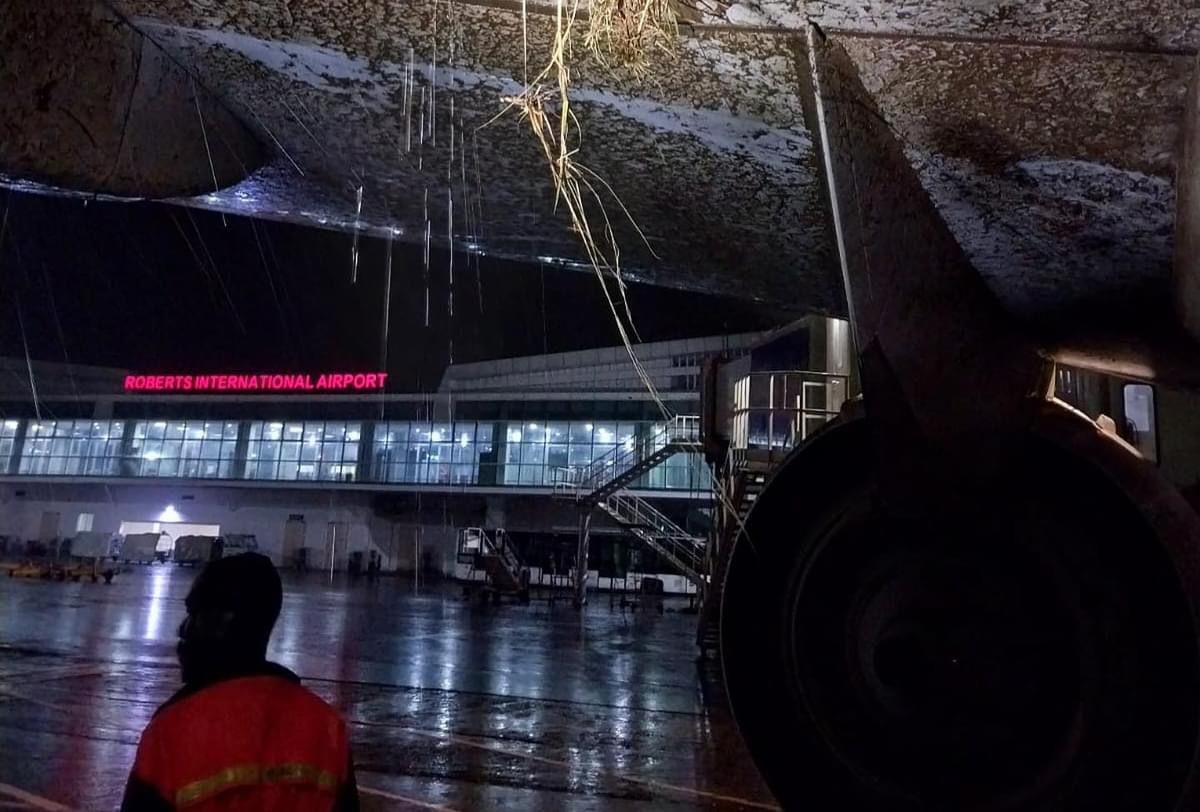Margibi, Liberia (August 17, 2024) – In what could have been a catastrophic incident, Royal Air Maroc flight AT-567 encountered runway damage shortly after landing at Roberts International Airport (RIA) early Saturday morning. Although the Boeing 737-800 aircraft safely touched down at around 5:15 AM, subsequent events have exposed serious concerns about the airport’s maintenance and safety standards.
After the plane landed, a routine inspection revealed substantial debris and damage to the runway pavement shoulders, raising red flags about the state of Liberia’s premier international airport. The Liberia Airport Authority (LAA) admitted that the aircraft picked up debris during its landing, an alarming sign that the runway may not be adequately maintained or inspected.
What’s more troubling is the report that the aircraft had veered slightly off the runway—a clear indication that the situation could have escalated into something far worse. Yet, the LAA’s reassurances that there were no injuries and that passengers were “unaware” of the issue come across as attempts to downplay the gravity of the situation. An incident involving a compromised runway should have raised immediate concerns about the airport’s operational safety.
The Liberia Civil Aviation Authority (LCAA) and the Aircraft Accident Investigation Bureau (AAIB) have launched investigations, but questions remain as to how this issue was not detected sooner. Critics point to the ongoing neglect of critical infrastructure at the airport, arguing that such oversight could have devastating consequences for future flights.
An aviation expert, Patrick K. O’Connor, who worked for the International Civil Aviation Organization (ICA0) in Montreal for many years as an aircraft accident investigator, told this paper that, “This incident is a wake-up call for the Liberia Airport Authority. It’s not just about runway damage—it’s about the repeated failure to prioritize safety and infrastructure at one of the most critical entry points to Liberia. They can’t continue to brush these issues under the rug. If the LAA and LCAA can’t guarantee basic operational standards, it raises serious questions about their leadership and competence.”



“The LAA and LCAA need to be held accountable,” O’Connor further emphasized, “and take immediate steps to improve oversight before a more tragic incident occurs.”
Despite the LAA’s statements about its commitment to safety, passengers have been left stranded and accommodated in nearby hotels, awaiting another Royal Air Maroc flight later in the day. The fact that an incident of this nature occurred in the first place underscores deeper problems in Liberia’s aviation safety protocols. While the investigation continues, it is clear that immediate improvements are needed to prevent a similar situation—perhaps with more serious consequences—in the future.
Liberian-born Emmanuel Orlind Cooper is an accomplished multimedia journalist with extensive experience covering news and stories on a variety of media platforms. Orlind's work frequently demonstrates his profound grasp of the region and its complexity, given his Liberian heritage.
Now residing in Woodbridge, Virginia, he keeps connecting with readers across continents with his perceptive journalism and sharing his viewpoint. He is well-respected in the sector because of his unwavering commitment to honesty and morality, which sets him apart in the field.
Orlind's work is more than simply his job; it's a dedication to giving voice to the voiceless, illuminating unsung tales, and advancing the worldwide conversation on important concerns. His goal as a journalist is to use the media's power to change the world, not just to disseminate information. He is a key player in modern journalism because of the inspiration, education, and engagement that his work consistently provides.


